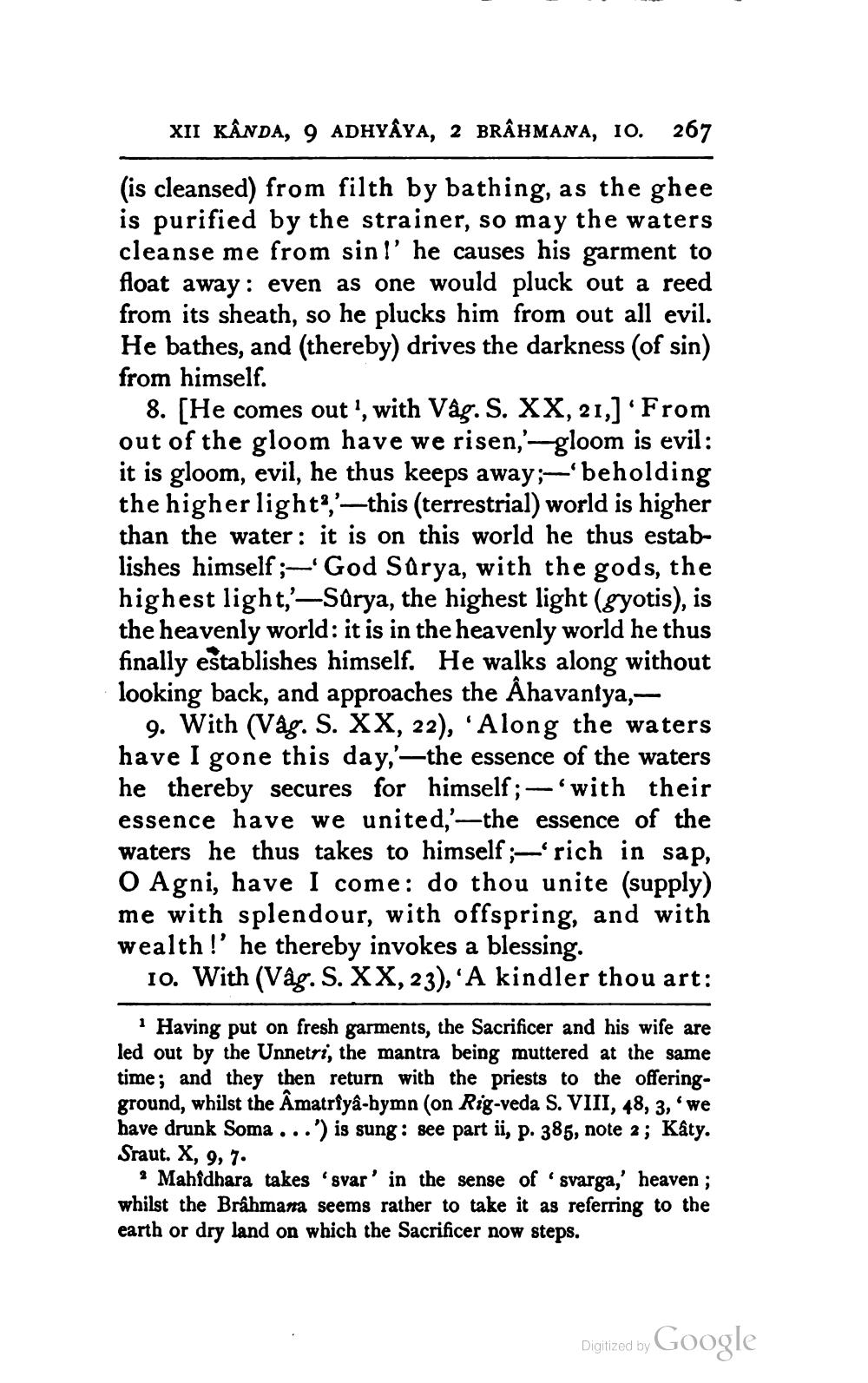________________
XII KÂNDA, 9 ADHYÂYA, 2 BRÂHMANA, 10.267
(is cleansed) from filth by bathing, as the ghee is purified by the strainer, so may the waters cleanse me from sin l'he causes his garment to float away: even as one would pluck out a reed from its sheath, so he plucks him from out all evil. He bathes, and (thereby) drives the darkness (of sin) from himself.
8. [He comes out', with Vâg. S. XX, 21,] From out of the gloom have we risen,' gloom is evil: it is gloom, evil, he thus keeps away;—'beholding the higher light”,'—this (terrestrial) world is higher than the water: it is on this world he thus establishes himself;— God Surya, with the gods, the highest light,'-Sarya, the highest light (gyotis), is the heavenly world: it is in the heavenly world he thus finally establishes himself. He walks along without looking back, and approaches the Ahavaniya -
9. With (Våg. S. XX, 22), 'Along the waters have I gone this day,'—the essence of the waters he thereby secures for himself;—'with their essence have we united,'—the essence of the waters he thus takes to himself;—'rich in sap, O Agni, have I come: do thou unite (supply) me with splendour, with offspring, and with wealth!'he thereby invokes a blessing.
10. With (Våg. S. XX, 23), A kindler thou art:
Having put on fresh garments, the Sacrificer and his wife are led out by the Unnetri, the mantra being muttered at the same time; and they then return with the priests to the offeringground, whilst the Amatriyâ-bymn (on Rig-veda S. VIII, 48, 3, 'we have drunk Soma ...') is sung: see part ii, p. 385, note 2 ; Kâty. Sraut. X, 9, 7.
Mahidhara takes 'svar' in the sense of 'svarga,' heaven; whilst the Brahmana seems rather to take it as referring to the earth or dry land on which the Sacrificer now steps.
Digitized by Google




